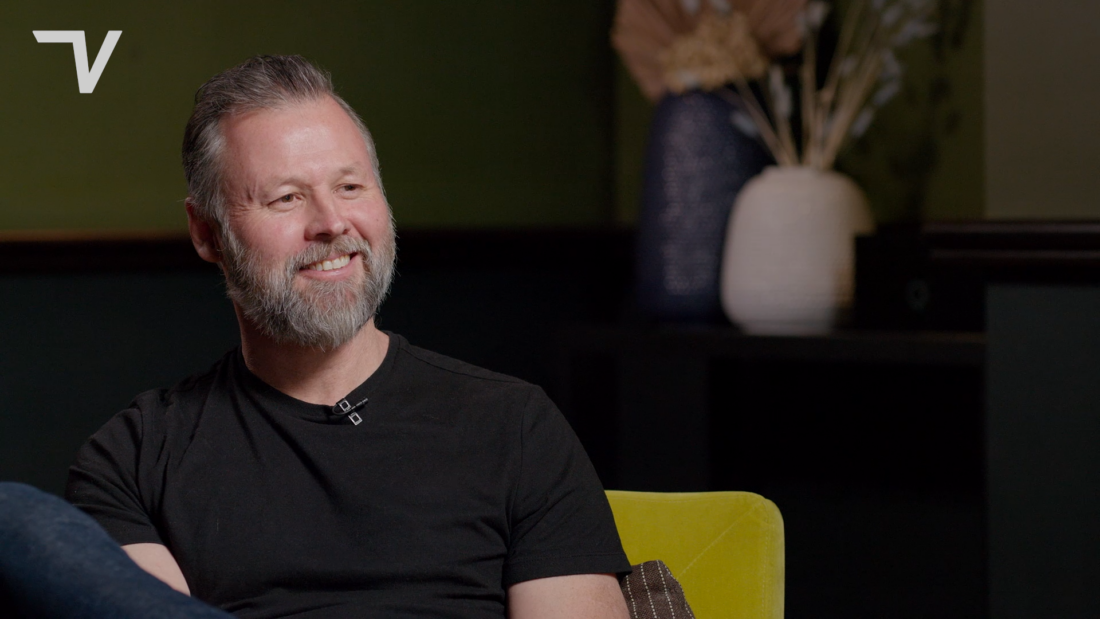A website is really the only asset that a client has total ownership over.
Tim Barnett is the CEO and Co-Founder at Sydney-based Sonnet, which works with independent agencies to help solve capacity and capability challenges through white label digital services, offshore resourcing, and lead generation. Barnett is also the Partner of Sonnet’s sister company, Parallel Outsourcing, which helps clients build offshore teams in the Philippines.
In this episode of Velocitize Talks, Tim Barnett shares his thoughts on websites, working remotely, AI and WordPress.
Rebranding & Offshoring
[Agencies] are dealing with us so they’ve got that interface in between the offshore team so it gives them that comfort level. Nothing’s going to get lost in translation.

“We know the challenges an agency faces,” Barnett says. “We know the the quality that they expect, the quick turnaround times that are required.”
Sonnet works with 60 partner agencies in offshoring, primarily in the U.S., Australia, New Zealand, and Canada. The company had been a full service digital agency named 2BInteractive, which worked directly with clients, before rebranding to Sonnet. They altered their business model to offer white label digital production services exclusively to independent agencies.
When Barnett began working with developers in the Philippines, he fell in love with the country and the people. “I was interviewing one of the guys and he was just so excited about the work he was doing and I just went, this place is awesome,” Barnett says.
The Philippines is an ideal offshoring destination for many reasons, considering that English is the official language, the substantial talent pool, and the modern technology infrastructure.
Offshore Production
We had agencies saying, we love your model but we actually want to hire our own dedicated staff.

Sonnet has a hybrid operational structure, which provides a local account manager to agency partners to ensure solid customer service. At the same time, the offshore production team is working to secure a cost-effective solution.
Barnett has found that agencies are looking closer at outsourced providers like Sonnet or, conversely, even hiring their own staff in the Philippines. For these agencies, Parallel offered another viable option. “We’ve got both of those models covered,” says Barnett.
Covid & the Remote Workspace
Covid forced people to work from home so companies across the board were forced to develop tools and processes around collaboration.

The pandemic, and the subsequent move to remote working, helped the outsourcing business and telecommuting in general gain increased credibility. Since Covid, there has been a dramatic transformation in what the workplace looks like, whether that’s working from home or hiring employees from overseas.
According to research from Forbes Advisor, as of last year, 12.7% of full-time employees work from home, while 28.2% work a hybrid model. And by 2025, 32.6 million Americans will work remotely. In addition, the computer and IT sector leads as the top industry for remote work.
Of course, with employees working remotely, and overseas teams in particular, there are potential security concerns regarding data protection. Companies need to consider their software and restrictions on work devices, among others. In fact, 70% of employees say they use their work devices for personal tasks.
“You have the flexibility of working from home and that creates a security risk for us so we need to balance that out,” Barnett says. “Security’s always been lacking in agencies in general.”
AI & Content
It’s just another tool, like people used to use Microsoft Paint for designing, people used to use notepad for coding, but new tools come in to make that process more efficient.

According to Barnett, rather than an employee producing content by themselves, they can leverage AI to help them, improving efficiencies in their writing. However, while the Sonnet team has been using AI for content production for some time now, it’s not intended for creating original content as much as crafting social media posts. “It gives them a little bit of an edge,” he says.
Content generators and chatbots can provide useful tips and suggestions while streamlining the editing process. However, relying on AI tools too heavily for your website content can be a mistake. For example, ChatGPT is only trained on resources up to 2021 so it will have a very limited knowledge of any occurence beyond that point.
WordPress & Open Source
Having WordPress gives us the flexibility and knowledge that we can get the people that we need to deliver to our clients based on what their requirements are, and we can do that in a cost-effective way.

Sonnet uses WordPress as its platform for around 90% of its business. Open source lends itself to ideal content management. It’s also considered the great equalizer of digital platforms due in part to its highly flexible and customizable framework.
Barnett credits WordPress for its availability of resources. The existing WordPress ecosystem boasts a broad community of web developers, designers, marketing professionals, and more. This fosters collaboration in website design and a solid platform for communicating no matter where your employees are located.
Future of Websites
If your content is on your website, that’s your content and they can’t take that away from you.

According to Barnett, as far as the longevity of websites goes, people have been predicting their demise forever, especially with the ongoing rise of AI, social media and apps. Although website design and development need to adapt and become mobile-friendly to remain relevant, the value of content and the clear SEO benefits cannot be overstated.
Content on your website is yours. But content on Facebook or Instagram is owned by those platforms. “Make sure you have your ownership of your own content, your own assets, and your own database,” Barnett says. “Your followers can disappear overnight.”
To learn more about Sonnet, visit their website and follow them on LinkedIn and Instagram. To keep up with Tim Barnett, follow him on LinkedIn.





Join the conversation